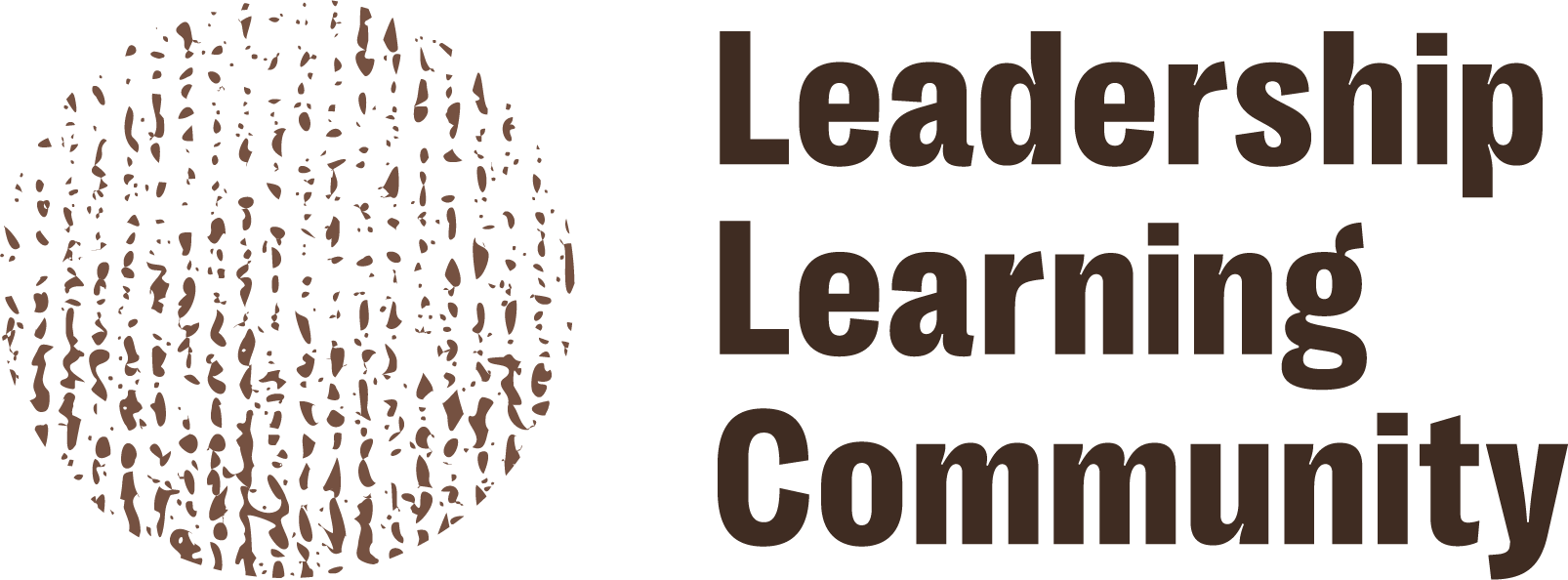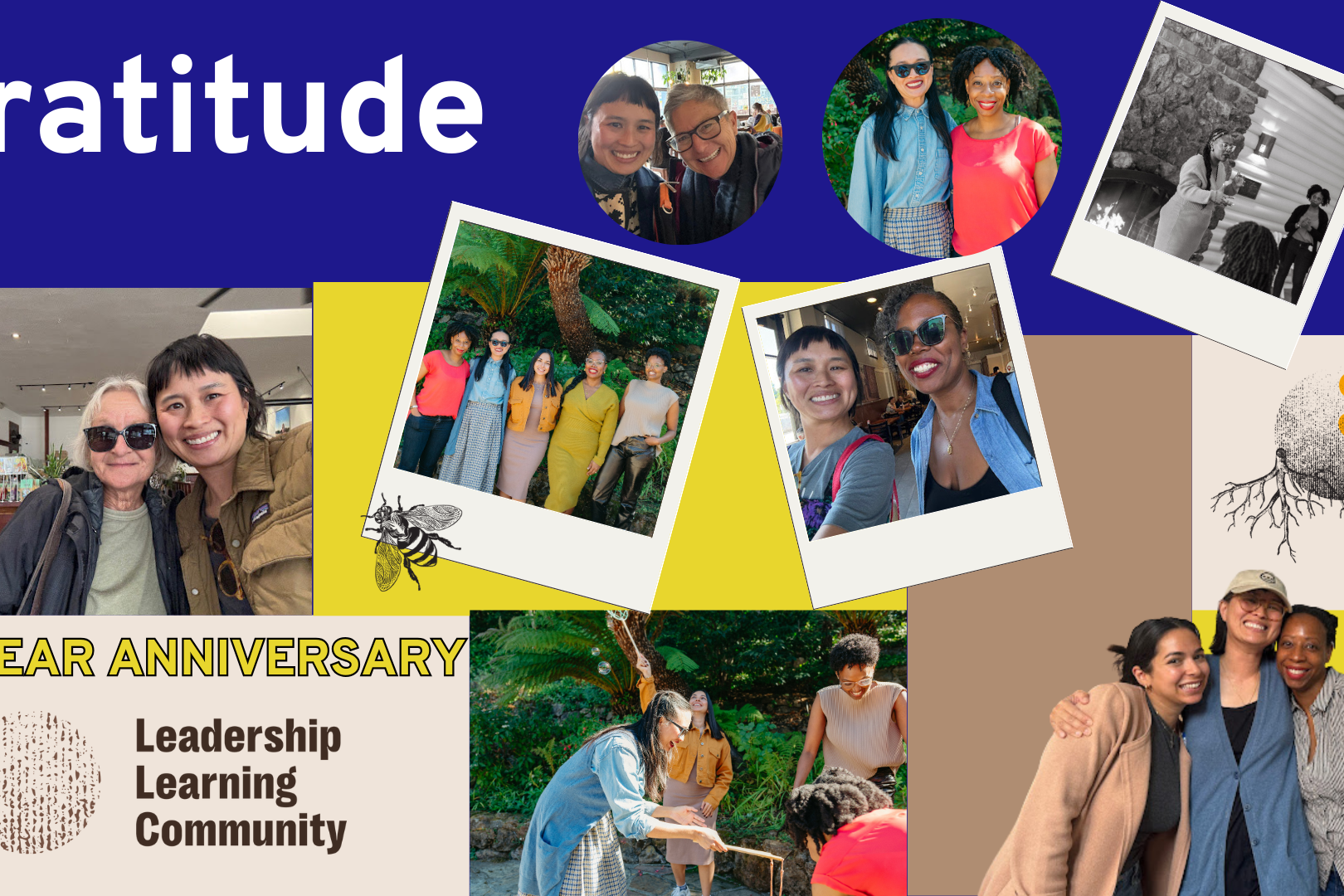This month, LLC celebrates its 20th Anniversary. Wow! At the beginning of the year, when we talked about coming up on the 20-year mark and reflections we might want to share about the future, we could not have anticipated the pandemic, massive uprising for racial justice, or corresponding level of state repression. Quite frankly, I was finding it very hard to write this blog, caught up in anxiety about what will happen over the following months. Ironically, taking the long view is helping to settle me down, along with limiting news consumption. The work of racial equity and justice, framed eloquently by Ericka as the work of liberatory leadership, is long-term work. Ericka and I will both be writing over the next several months about the next 20 years and liberatory leadership. I am just kicking off these discussions with a little looking back and a couple of personal reflections about leadership in general and, more specifically, my role in this work.
Over the past ten years, LLC put a stake in the ground around several vital ideas that I believe stand the test of time and can guide social justice leadership work in the years ahead:
Leadership Happens as a Collective Endeavor in the Fight for a Just Future:
- Looking back: Over the past ten years, we have challenged the heroic individual narrative of leadership that has been baked into our leadership thinking and reinforces White Supremacist cultural characteristics of meritocracy, individualism, and hierarchy. Leadership happens when people take action together, and the most effective leadership support is provided to individuals and groups as they engage in social and racial justice work. In the past couple of years, under Ericka’s wise leadership, we have raised the critical importance of moving those supports to community problem solvers who have the greatest wisdom for generating solutions.
- Looking Forward: Over the next 20 years, as we continue to build a new narrative about leadership, that everyone has the ability to lead with others on racial and social justice, we are going to need to change old ways of delivering leadership development focused on individuals and think about how we move resources into communities so that everyone who wants to lead, can.
Leading Systems Change through Network and Movement Building
- Looking Back: Mainstream leadership development models over the past decades were largely focused on advancing changes through organizations by strengthening the leadership of non-profits. To address complex and deeply systemic issues like racial inequity and environmental degradation, we need to work across organizations to address the root causes of problems. We have learned a lot about the power of network principles and networks themselves from communities of color, in which networks operate organically to mobilize resources for collective care. We also are learning from the actual practice of supporting network activation. We will be sharing a case study this fall.
- Looking Forward: Amidst a failing democracy and the threat of totalitarianism, there is also an opportunity created by the massive uprising demanding racial justice. The work ahead requires clear framing of the systemic issues that can connect and mobilize across single issues to advance racial equity and justice. A lot of networks and movements embed leadership development opportunities into action learning and reflection. There is an opportunity to move beyond traditional individual programmatic approaches to leadership development and learn from and support equity-centered networks and movements that support and mobilize leadership at a scale and with an impact not possible through traditional models.
Racial Equity is at the heart of all Leadership work:
- Looking Back: In 2009, we launched a collaborative research project to explore the intersections of leadership and racial equity with the punchline that if you are not bringing a race-conscious lens to your leadership work, you are likely contributing to structural racism by obscuring white privilege and power with notions of meritocracy and individual achievement. We continue to develop and promote tools and resources to help leadership programs better center race and equity, and of course, over the past ten years, critical race theory has evolved.
- Looking Forward: In the aftermath of George Floyd’s murder, we experienced the leadership of young black people stepping into a pivotal moment to radically shift the public discourse and broader perception of race and anti-blackness in this country. While many were mobilized, it’s important to pay attention to who was leading and humbly to the difference that was made. Since then, I have been thinking about what this means for leadership development and where leadership resources should be invested. What could change if most, if not all, of the investments in leadership centered on the leadership of BIPOC, especially those who have been most impacted by systemic racism.
Personal Reflections:
Who Needs to Lead Now: I saved racial equity for last because I also want to share some personal reflections on leadership and racial equity. I am going to be a spoiler and start with the conclusion. I am planning to leave LLC at the end of the year, I will continue on a number of consulting projects, and I will not be part of the staff or board.
I love LLC and believe it’s an organization that has had an important impact (I might be biased here). I believe that in the years ahead, LLC will be called to play a more critical role in centering racial equity in leadership development spaces and supporting BIPOC leadership. In general, I think this work needs to be BIPOC-led. And very specifically, I know firsthand that I could not advance this work as powerfully as Ericka has been and will in the years ahead. I could stay on as a fan and supporter of Ericka, and I also understand the challenges and power dynamics (which Ericka has handled with amazing grace) of Co-Directing with a founder who is older and white. I have imagined this, and it’s why I know that leaving is the right thing to do. It’s Ericka’s time to unleash the full power of her vision and to bring on the next Co-Director to partner in shaping the next 20 years for LLC.
Why this is Important: I want to share my learning over the past year and a half in the hopes of inviting other boards and white EDs into the work of interrogating why we need BIPOC leadership. On the few occasions in which Ericka and I have had different ideas about how to proceed with something when I listen to her reasoning, it becomes evident that, again, I was not seeing subtle ways in which my privilege was shaping assumptions about things like supervision or risk-taking, personal-professional boundaries (to name a few). In my experiences in an equity-centered network project, I have had additional opportunities to learn about the power of centering the leadership of black women specifically and BIPOC consultants and network members. As a result, this network has created trusted spaces where folks raise equity issues, has designed low threshold equity funds to quickly support critical COVID work, recalibrated consulting fees to recognize lived experience, engaged in productive conversations about the impact of sessions led by white folks for white folks, and practiced with new equity-centered decision-making tools. I can honestly say I cannot imagine this amazing work happening if we had not centered BIPOC leadership, and bluntly if I had not stepped back from a lead role to more of a support and project management role on the project.
Learning and Unlearning Roles for White Folks: This does beg the question, at least for me, what contributions can I make to a more equitable and just world? Honestly, I don’t really know yet. I am feeling very humbled these days about not knowing, and I think that’s a good thing. One of our board members, I will give a shout-out, Lisa Leverette, recently said, white folks are going to have to figure out how to be supporters, and that is not going to come easy. I will add humble supporters. I don’t think this is something we are teaching white folks in leadership programs (of course, in addition to how to recognize and use their power and privilege). Lisa is also the same person who, when Ericka and I started our Co-Directorship relationship, suggested that I would have to learn what it meant to step back and not step out.
White Humility: I have read many books on how to be an anti-racist and got the language and concepts, and I still find myself making lots of mistakes. Of course, I will continue to read, and I realized I needed a different kind of personal practice, which I am calling white humility for myself. I thought I would share a few simple things from my imperfect practice of being in a support role.
- Listen more/talk less: Obviously, you can’t listen when you are talking. One beauty of Zoom is the mute button. Using it helped me to see how many times I started to talk over someone. It’s like training wheels. This is also my first post in six months. I recognize that Ericka has a stronger, clearer, and better-informed voice for meeting this moment, and I am happy to support her in other ways.
- Gratitude: I feel deeply grateful for the feedback given about microaggressions and other expressions of inequity (even when I am the subject). I’d like to imagine I have outgrown defensiveness about my racist actions. I suspect that it’s the generosity of amazing teachers who call me in instead of calling me out. Thank you for taking the time to help me learn.
- Be a helper: Step back and offer help, especially to BIPOC who are taking up leadership, perhaps without the support I had. I am offering to take meeting notes, help more with scheduling, and do the behind-the-scenes work on teams.
- Seek guidance: One mistake I made was helping to organize a session for white folks on being a better anti-racist without the guidance of BIPOC about whether the timing/content was right. (friendly amendment – that guidance should be compensated)
Implications for Other White Folks Leading in the Leadership Space: I was in a program to help explore leadership transitions for EDs who might make a change in five years, and there was little conversation about making the leadership transition of baby boomers a transition that would address the current inequities in leadership well documented by the Building Movement Project. I do not believe the opportunity created by the uprising will be realized until we make this shift. I invite others into the hard work of rethinking our roles and how we can make space for BIPOC to lead – maybe more chairs at the table, better yet – maybe our chairs, perhaps new roles. Suppose white folks leading in leadership spaces don’t engage in these questions ourselves and figure out how to step back. In that case, it will hinder work to center racial equity effectively and better serve BIPOC leadership in leadership development practices. Whether dwelling in the current moment or taking the long view….this is high-stakes work that starts now!
Related Posts
December 15, 2025
LLC’s 2025 Celebrations
July 21, 2025




